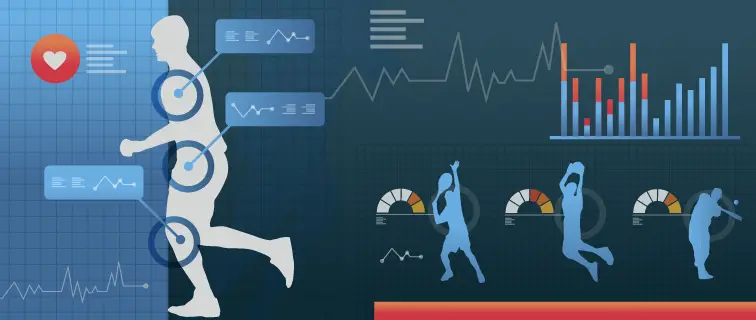Role Of Data Analytics In The Sports Industry

Sports analytics involves studying athletic performance and health data to improve sports organisations and teams. It has two main parts: on-field data analytics and off-field data analytics. On-field analytics help improve in-game strategies, while off-field analytics focus on ticket sales and fan engagement.
However, the application of data analytics is not just limited to outdoor sports; it also impacts indoor and online games. For instance, online gaming platforms like top sweepstakes casinos use data to analyse which games to include. This platform offers a variety of online gambling and casino games that the players can play without using real money.
However, in this blog, we will focus on data analytics’s role in the sports industry.
Role and Impact of Data Analytics in the Sports Industry
Data analytics benefits all parties involved in the sporting industry. From media broadcasters, players, and team coaches to the audience, everyone is impacted by data analytics. Read on to learn how.
Injury Prevention
Data analytics helps prevent injuries by monitoring player workload and detecting anomalies in player performance. For example, cricket tracks the bowler’s workload to avoid overuse injuries. Additionally, it aids in identifying patterns that may indicate increased injury risk, allowing teams to address them before serious issues arise.
Performance Analysis
Teams and players use data analytics to evaluate performance and identify strengths and weaknesses. For instance, it helps measure metrics like batting averages and strike rates in cricket and shooting accuracy and defence in basketball. These data pinpoint areas for improvement.
Moreover, detailed performance analysis enables coaches to tailor training schedules to address specific issues and enhance overall team performance.
Player Scouting and Replacement
Analytics has revolutionised the player recruitment part of the sports industry. It has made it easier to identify talent and evaluate potential performance.
Algorithms help teams find suitable replacements for leaving players. Moreover, data-driven scouting allows teams to discover undervalued talent, which can provide a competitive edge.
Read Also: Are Liverpool And Arsenal Out Of The EPL Title Race?
Competitor Analysis
Teams use data to study opponents’ weaknesses and strategies, allowing the coaches to create tailored game plans. Additionally, advanced statistical analysis enables teams to predict opponent behaviour and future decisions, leading to proactive decision-making during matches.
Setting Ticket Prices
Setting the right ticket prices is super important for sports teams to make money. Data analytics helps with this by examining how fans act and what they like. It checks how old fans are, where they live, and when they buy tickets.
Using data, teams can understand which fans to focus on and make tickets affordable. They also look at past events to see when more people want to come. It helps teams know when to charge for tickets. By looking at what other teams are doing, they can find the best way to price their tickets and make more money.
Improving the Viewing Experience for the Audience
Over the years, how sports are shown on TV has changed a lot. Back then, commentators just talked about what was happening. But now, owing to data analytics, they also give viewers extra facts and numbers to make watching more interesting.
Broadcasters even have statisticians and data analysts to share more information with viewers. The graphics on the screen now include more details to help viewers clearly understand the events during a match.
Wrapping Up
The future of sports analytics is gradually extending beyond just analysing team performance. Data analytics with predictive modelling is now helping sports and media houses to personalise fan interactions and improve engagement.
It helps teams create deeper connections with the audience, leading to increased interest and cross-border fandom in top gaming events.



